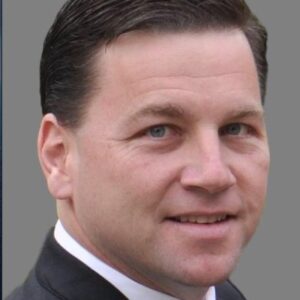Attempts to return America’s 20 million college students to campus without flaring COVID-19 cases are mixed at best. Students are dubbed selfish for violating public-health requirements. Administrators are faulted for ambiguous messaging and inadequate preparations. Parents are impatient, and local communities risk intolerances. Trust is eroding among all the key higher education constituents.
We need to reframe this vital matter. We are asking students to sacrifice, but jumble it with apologies and admonitions. Instead, we should appeal to the aspiration inherent in young adults to discover purpose beyond themselves. We are at war in 2020. The primary enemy to our civil liberties is the virus itself. We will secure the freedom that so many of us crave by defeating it. As has been the case for centuries, we need our young to sacrifice to help win.
As we close out the summer, let’s consider the pertinent wartime history of summer months alone.
On August 25, 1944, after unimaginable fighting, thousands of American and other Allied troops rolled into Paris to liberate it from Nazi rule. Sixteen was the youngest legal age of enlisted American soldiers in World War II, which claimed nearly 300,000 U.S. combat deaths.
In August 1864, Union troops fought and eventually defeated Confederate counterparts at Mobile Bay—a battle made famous by Admiral Farragut’s cry “Damn the torpedoes, full speed ahead!” The youngest Union soldier, drummer John Lincoln Clem, sought to enlist at the age of 10. Well over 200,000 soldiers perished on the battlefield in the Civil War.
And August 27, 1776, saw the largest clash of troops in the Revolutionary War. With the Battle of Long Island, General Washington and the Continental Army retreated to Pennsylvania, sacrificing the Port of New York to the British for the war’s duration. The average age of American troops was just north of 20. Roughly 4,500 U.S. soldiers died in the War of Independence.
Across generations, America has looked to our young to secure or blessings of liberty and defend freedom. Today, we are at war again. Not with hostile human powers, but the unsparing contagiousness of COVID-19. It has reportedly caused more than 192,000 Americans deaths to date. As tyrants do, it preys disproportionately on the more vulnerable among us, like the elderly and the poor. If the United States cannot rally to defeat it, current trends predict the American death toll by the end of the year it will surpass the battlefield deaths across the entire Civil War.
What is different this time is the nature of what we must ask of our young. The request is for something more prosaic: wear masks, practice social distancing, limit the size of gatherings, and apply the Golden Rule. In exchange, the elders — whether leaders of venerable institutions or parents entrusting you to them — owe them logistical support in the form of testing and tracing, better clarity, and behavioral modeling. Overcoming these challenges requires sacrifice and accountability, including tempering our own liberties for the greater good. As generations before have learned, with freedom comes a responsibility toward each other.
A youthful President Kennedy declared in his 1961 Inaugural Address that “the torch has been passed to a new generation of Americans, born in this century.” Today, the torch of responsibility is passed onto a new generation of young people tasked with fighting an unseen foe. These events will define a generation. So, we urge our college-bound Americans to raise high the torch that history has thrust to you. Some have already, but more of you are needed. Mask up, socially distance, gather in small numbers, and think of your fellow Americans of all ages and walks of life. Only then will you lead in our shared victory. History’s trumpet summons you.
______________________________________________________________________________________________________________________
John J. Hamill
John J. Hamill is a trial lawyer based out of Chicago who has practiced in courts across the country since graduating from Harvard Law School in 1993. His writings urge that Americans should look ahead to better civil discourse that starts with a mutual acceptance of the actual facts. He can be found on Twitter and on Medium. He has contributed to Smerconish and other publications, including recently the Chicago Sun-Times.
______________________________________________________________________________________________________________________







